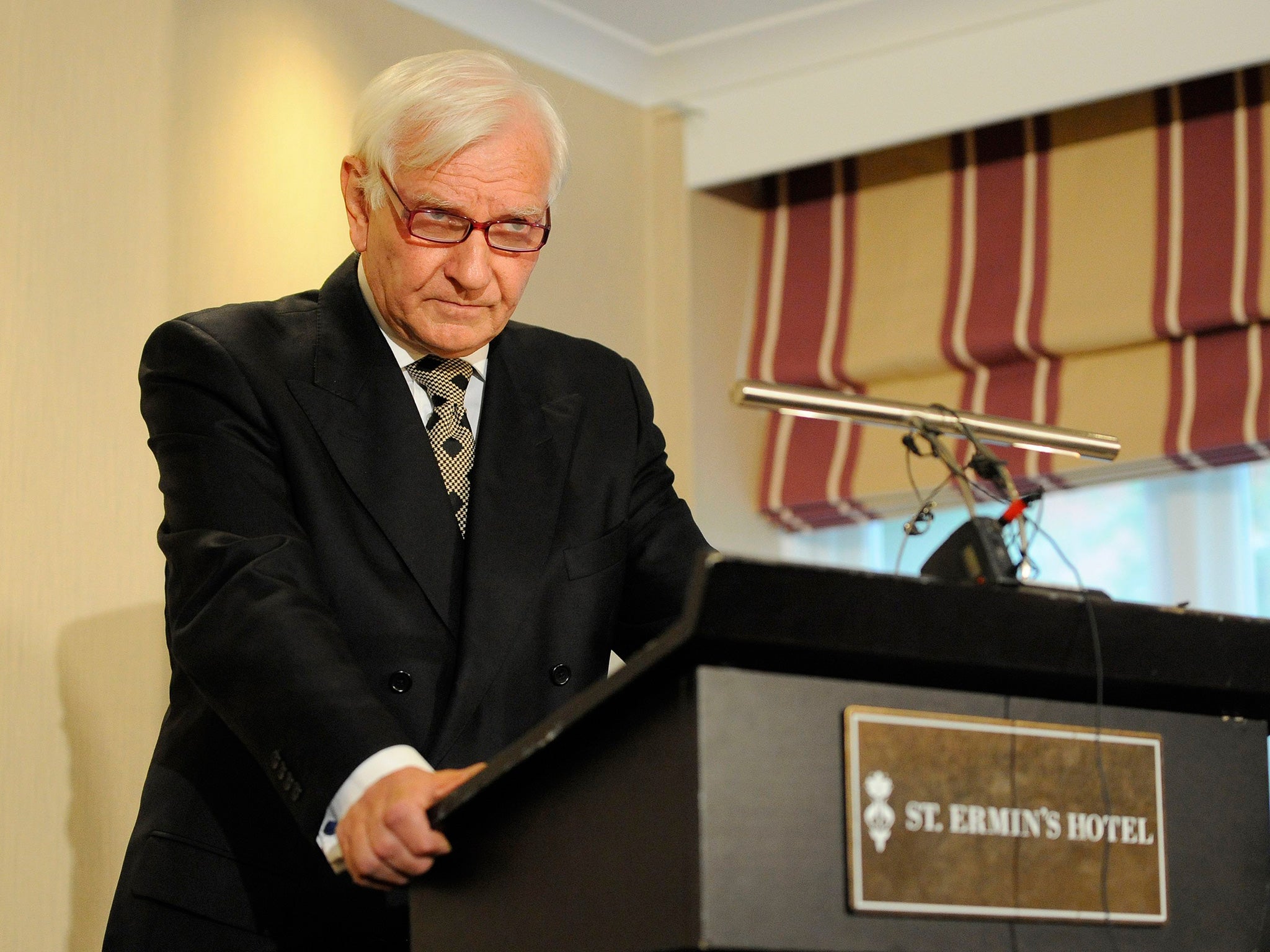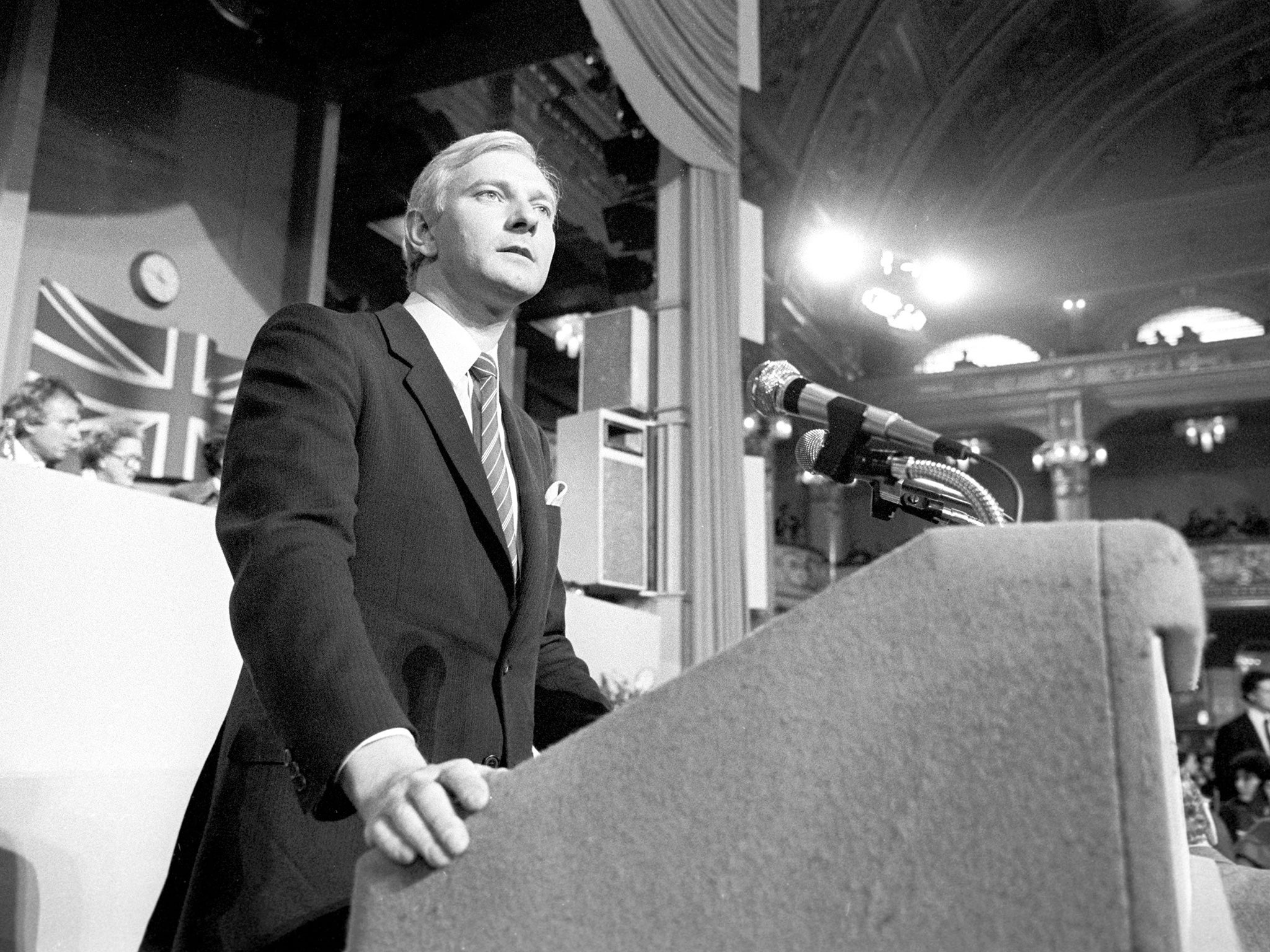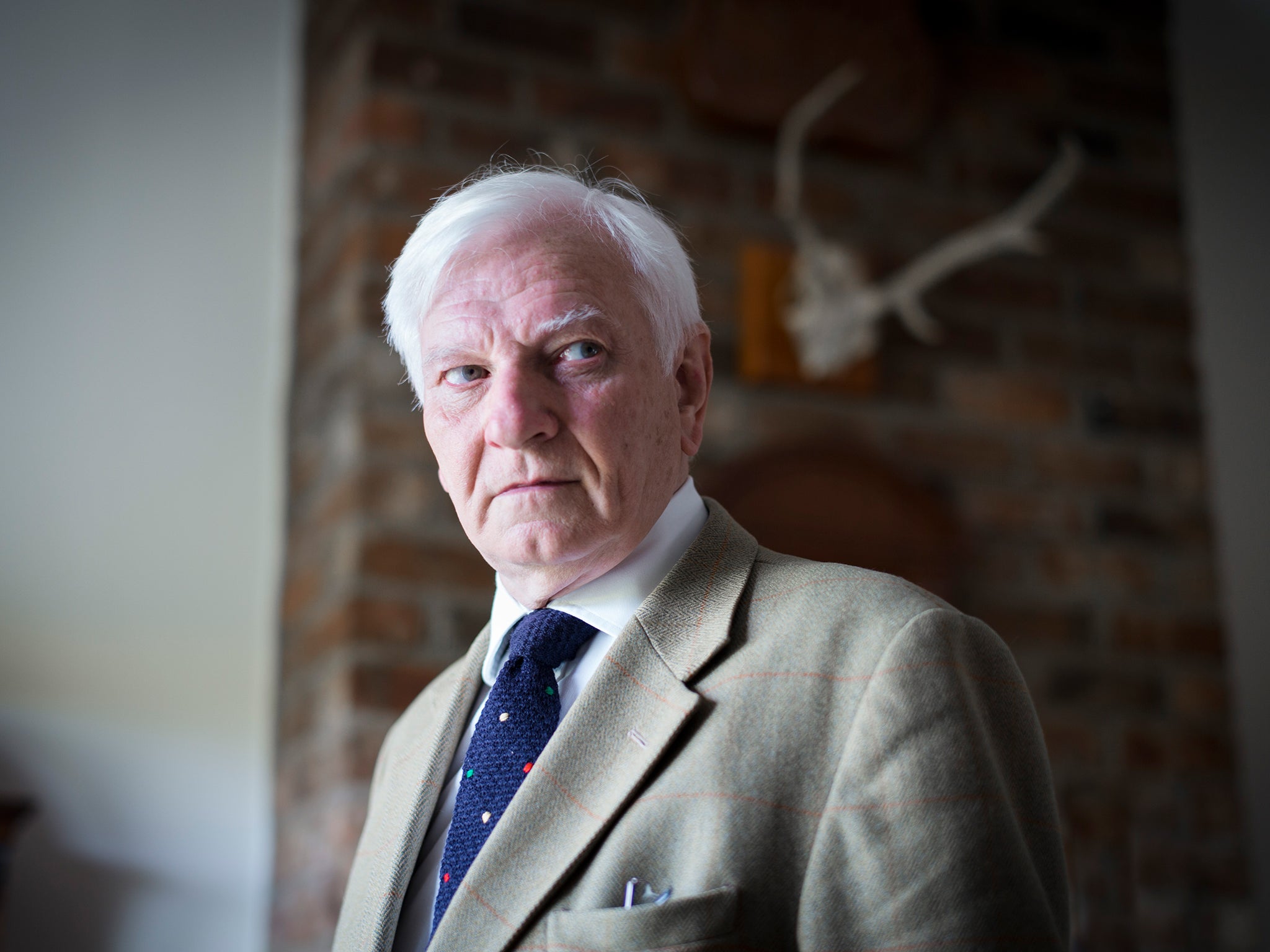Harvey Proctor and a worrying case of justice by lynch mob
When the press is set on a celebrity trophy hunt, the police should not be so scared of standing up for the truth

It’s an unusual press conference when the protagonist welcomes those assembled from far and wide and suggests, if they are of a nervous disposition, that they go home again. But last Tuesday’s gathering at St Ermin’s Hotel, central London, to hear Harvey Proctor’s lengthy protestation of his innocence and denunciation of the police was always going to be remarkable.
It had been a while coming. He had been thinking of launching his salvo a couple of months ago, even before Ted Heath’s name was raised, but was persuaded not to on legal advice. This time, there was no stopping him. If he is the practised abuser and murderer he has been accused of being (which I happen not to believe), by an alleged sexual abuse victim known only as Nick, he’s also the most spectacularly accomplished liar. OK, he’s a politician, ho ho, but this would be world-class mendacity on a par with golden age Soviet propaganda and those tearful born-again US philanderers we used to hear so much of.
Nobody said the police’s job was easy, and historic child abuse must be among the toughest of nuts. For a start, there are hardly any reliable forensics available. Many of the episodes happened too long ago for there to be extant witnesses to what, in any case, probably happened in private. How do you prove the victims were under the age of consent at the time? How can you tell if a genuine victim – possibly unschooled in how brittle a thing courtroom credibility is – is not misremembering (or maybe even over-egging) some of the details or abusers? And many of those who were abused were traumatised by what happened, had few if any reliable adults to turn to, and turned to activities that now make them less than credible – if still truthful – in a witness box.
So the police’s best hope is strength in numbers. If more than a couple of witnesses, independently of one another, say suspect X inflicted the same kind of treatment (ie, had the same kind of tastes) on them, a picture of an offender begins to emerge. And the only way to flush out that sort of corroboration is to go public, encouraging witnesses to come forward.

The police themselves can’t do that, of course, as it would infringe the rights of the innocent (and guilty, for that matter). But, happily, proxies may oblige, which is why the police could honestly say they had no hand in tipping off the media when, for example, Cliff Richard’s house was searched. (Standing outside Ted Heath’s house as if it was a crime scene doesn’t seem to matter so much, apparently, because he’s dead.) And such is the frenzy of the current chase that parts of the press want to transform an already shocking tale of “ordinary”, widespread, often systematic abuse by teachers, social workers and relatives, given spurious authority by the appalling Paedophile Information Exchange, into a celebrity trophy hunt. Pop singer? I’ll raise you an MP.
And who better than Harvey Proctor to oblige? He wasn’t dead, but he was the next best thing. After all, he certainly looked a queer fish. One paper last week called him “an unsympathetic figure”. The 1987 snapshot of him in the nation’s collective memory was a particularly foreshortened one. Times have changed extraordinarily. In those days, gay politicians were not supposed to exist, and certainly not to mind being routinely called pooftahs.
Proctor, with strong libertarian views and a taste for vigorous physical contact, which was well ventilated in the newspapers, attracted the poison of Britain’s dying illiberals. The conviction for gross indecency seemed to confirm how much he deserved it. And the fact that he set up as a shirt retailer, inevitably dubbed “Shirtlifters”, just added ridicule to the bile.
Yet that wasn’t him at all. As his friend Matthew Parris has pointed out, he was and is a much more private figure, a homosexual of the “discreet uncle whose sexuality was never discussed” type, rather than a predatory proselytiser. In his Channel 4 interview with Proctor, Krishnan Guru-Murthy seemed not far from suggesting that because Proctor had been convicted of gross indecency in the 1980s, the chances were he was there or thereabouts when young children were being murdered. With respect, it doesn’t necessarily follow, m’lud. Have times changed so much that, looking back, we can’t tell the difference between an in-the-closet homosexual and a child murderer?
I haven’t met Nick. From what I have heard, there’s no reason to doubt that he was abused. I’ve met other people who said they were abused, and generally I don’t doubt that either. I have met Proctor, and in a list of names I asked him about, I included what I believe to be Nick’s real name. It produced not a flicker. Hardly conclusive, but for what it’s worth, my strong belief is that he still doesn’t know who Nick is.

I happen to believe that some famous people were involved in abuse, and I fervently hope the truth emerges, whether they are alive or dead. To call the police paranoid and homophobic is a little strong, but they have not showed much guile or judgement over this. They seem worried about being seen as part of the establishment (perhaps as a result of earlier shortcomings), petrified of getting a bad press and have lost track of their own bearings. Why else did they allow cancer-stricken Leon Brittan to go to his grave without clearing him of a rape charge – after Tom Watson complained at the case being dropped – when they knew it was going nowhere? Why else would they go on TV to say that Nick’s accusations against the powerful were credible and true?
Either the police believe the claims against Proctor (remember those names: Ted Heath, Leon Brittan, the heads of MI5 and MI6), in which case a little sleuthing could have marked their card. Or they don’t, in which case they could surely have found a way of observing protocol and keeping the matter out of the court of public opinion. We’re supposed to have got over justice by lynch mob long ago.
Join our commenting forum
Join thought-provoking conversations, follow other Independent readers and see their replies
Comments
Bookmark popover
Removed from bookmarks